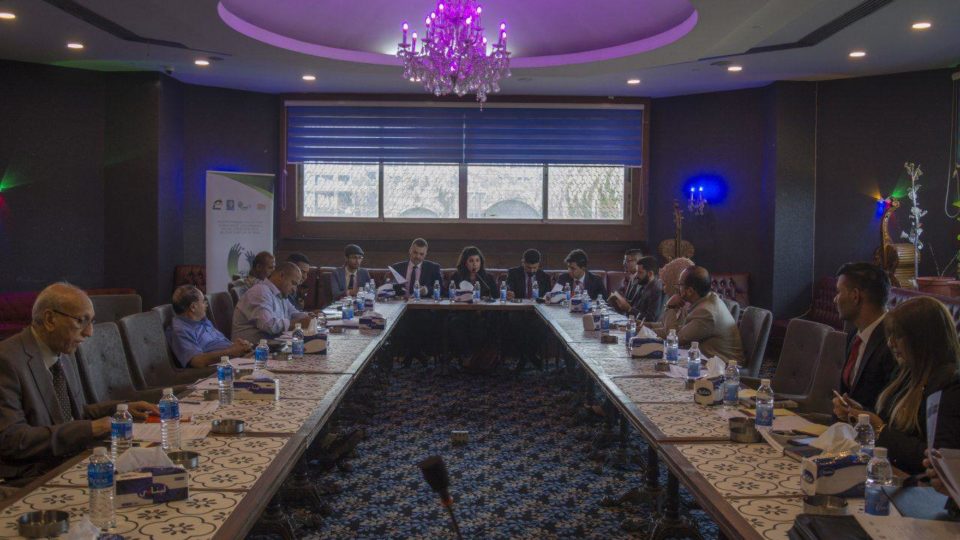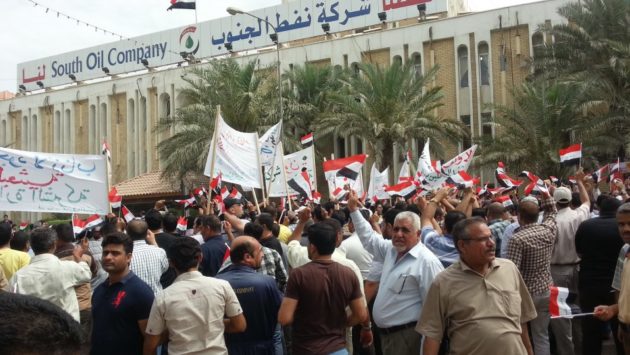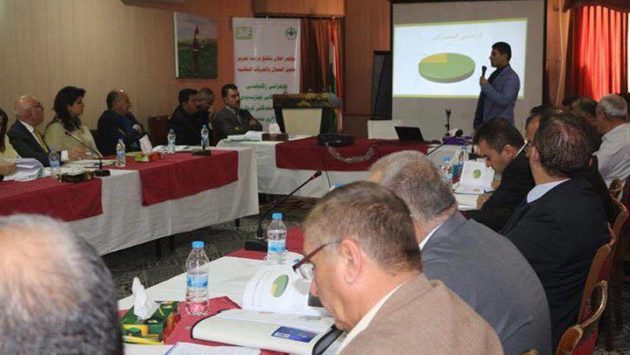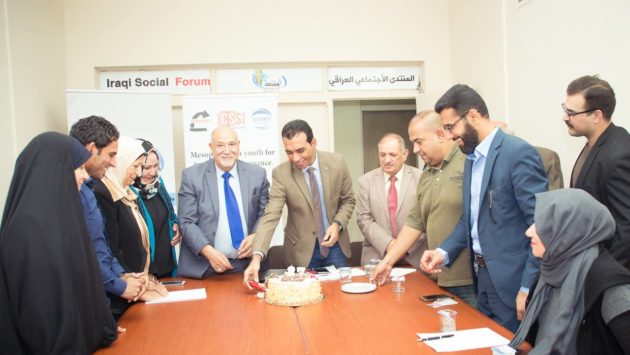A Successful Dialogue Session about Fair and Just Work Practices
To mark International Labor Day, the Baghdad Social Cohesion Council held a dialogue session on 30 April 2019 to discuss ways of ensuring fair and safe work conditions and reducing the amount of precarious employment in Iraq’s labor market. The session was held in at Al Khayyam Hall in the Mansour Melia Hotel, and participants included a group of workers representing municipal sectors, trade unions, bar associations, civil society organizations, and jurists from the Ministry of Finance. Together they aimed to find effective solutions to persistent problems relating to workers’ rights and to establish the foundations of just and fair work in Baghdad.
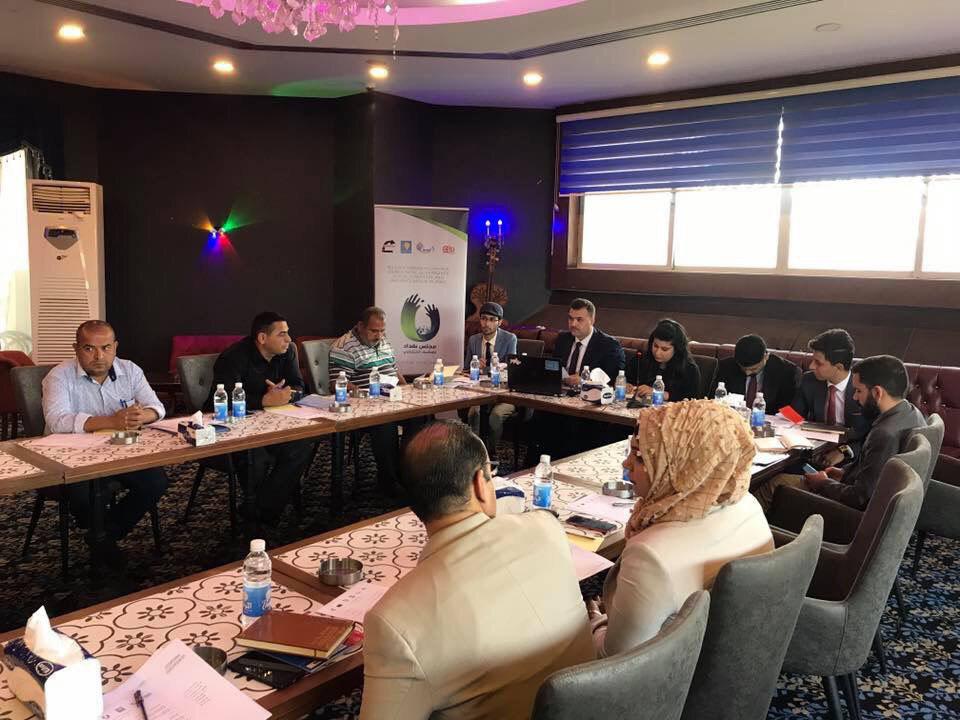
The session started ran from 9:00 to 3:00 pm, giving attendees time to explore and debate the issues in depth. At the end of the day, a committee was chosen to follow up on the group’s recommendations and implement them in three work sites: the Ministry of Health, local councils, and the Municipality of Baghdad. The committee included representatives from trade unions, the Baghdad Social Cohesion Council, civil society, the parliamentary development initiative, the Ministry of Finance and workers from different municipalities.
In the first session, participants discussed the legal framework now in place to protect employees who are at the mercy of the daily wage system (which limits their compensation and does not guarantee their rights), contractors within government departments and the public sector (especially those relating to health), local councils, and the Municipality of Baghdad (both those who are directly employed by government departments and those contracted by secondary companies to carry out work). The session focused on Law No. 37 of 2015 and the amended Pension and Social Security Law No. 39 of 1971, acknowledging the decisions of the Council of Ministers concerning the determination of the minimum wage and the transfer of workers of the daily wage system within the state and public sectors to the contracts system.
The second session dealt with the situation of workers of the daily wage system in the municipalities sector of the Diyala Bridge. This is an area where workers have faced major challenges, the most important of which was a delay in receiving their salaries for more than two months. These same workers were denied holidays and vacations, they were not included in the laws issued by the Council of Ministers establishing a minimum wage which far exceeded what they had been paid, and they were not transferred from daily wage system workers to the contracts system so that their salaries and rights would be ensured. In addition to these critical issues, most workers in the Diyala Bridge sector suffered due to poor physical conditions and from exposure to chronic and deadly diseases during the period of their work or or arising after it was completed.
In the third session, trade unions and government agencies were given the opportunity to discuss the most important measures they have taken to deal with the conditions of workers and the laws and decisions related to their work. The most urgent obstacles facing employees are the lack of clear instructions to various sectors about how to enforce the laws and decisions concerning workers, and the lack of inspection staff in the Ministry of Labor to make sure laws protecting workers are actually being observed.
In the fourth session, all participants reviewed the solutions proposed and a set of recommendations were issued, including the following:
• Implement Labor Law No. 37 of 2015 in the worksites of the Ministry of Health, local councils and the Municipality of Baghdad, focusing especially on the articles of the law relating to wages, working hours, official state holidays, occupational health and safety;
• Transfer daily wage system workers to the contracts system according to the decision of the Council of Ministers No. 12 of 2019;
• Include all workers in the above-mentioned workplaces under the Pensions and Social Security amended law No. 39 of 1971;
• Hold government institutions fully responsible for ensuring that labor law, pension law and social security for workers’ law are applied by the owners of companies contracting with these government institutions;
• Support trade unions in pressuring government institutions to implement the labor law, pension law, and social security for workers’ law;
• Settle the salaries of contract workers to Iraqi banks according to the decision of the Council of Ministers No. 12 of 2019, providing that these banks bear all settlement fees;
• Prepare controls to facilitate the implementation of decisions of the Council of Ministers by the Ministry of Finance and the Ministry of Labor and Social Affairs;
• Include all trade unions in the inspection committees of the Ministry of Labor to facilitate the follow-up of the implementation of the Labor Law in government institutions and the public sector;
• Activate the role of the Federal Financial Audit Bureau to audit payroll lists at the three work sites: Ministry of Health, local councils and the Municipality of Baghdad.
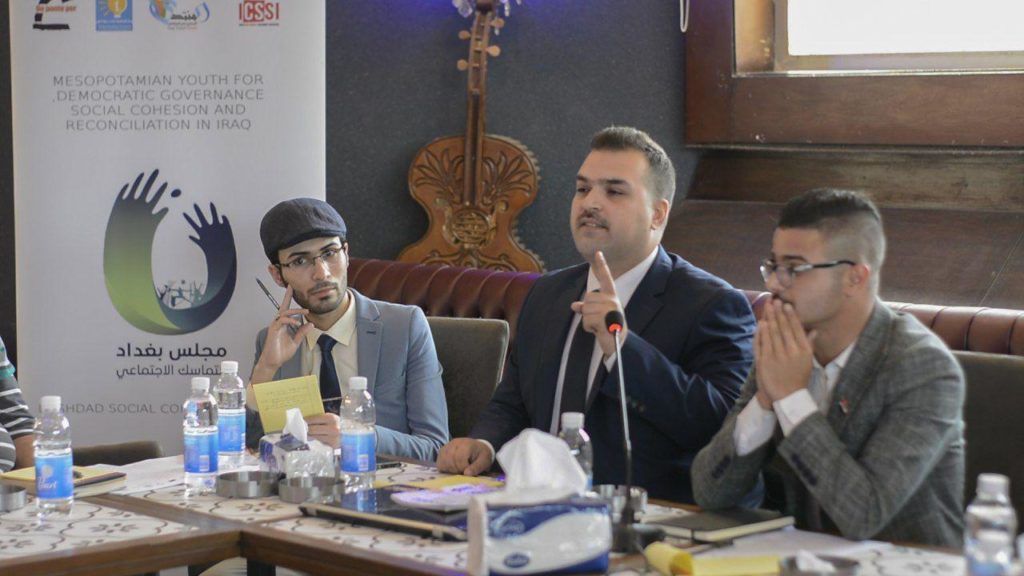
Special recommendations:
• Determine the minimum monthly wage for employees according to the decision of the Council of Ministers No. 413 of 2017 that sets the minimum wage to 350,000 Iraqi dinars per month;
• Set the minimum wage for one working day to 16,000 Iraqi dinars at 22 working days per month, and a rate of 40 work hours per week according to the Council of Ministers Resolution No. 12 of 2019;
• Conduct primary and periodic medical examinations for all workers, as provided in the Labor Law and within the provisions of Article 114 item 2, and provide personal protective equipment for workers, and let no employee bear any financial costs thereof, as stated in Article 114 item 2 H of the Labor Law;
- • Determine working hours
as stipulated in the Labor Law and within the provisions of Articles 66-73: the
daily working hours shall not exceed 8 hours per day or 48 hours per week,
taking into account the exceptions stipulated in the Labor Law;
- Ensure that government institutions, management departments, and employers are committed to caring for and treating all injured workers until they are fully recovered. In this context, treatment means a full medical examination in a clinic or at home if necessary, the provision of necessary treatments, access to specialists, hospital stays, surgical procedures, radiography, laboratory tests, rehabilitation services, prosthetics — in short, all that the patient needs to recover in accordance with articles 45, 46, 54 and 55 of the Pension and Social Security Law for workers;
- Guarantee that any worker who sustains an injury while on the job shall receive an injury pension according to Article 56 of the Pension and Social Security Law;
- Provide an injury pension for workers who die as a result of a work-related injury, as determined by Article 56 of the Pension and Social Security Law to the family of the deceased worker;
- Provide training courses for workers in the three workplaces by trade unions on labor law, pension law and social security;
- Provide educational courses for workers at the three work sites by trade unions about the role of and rights associated with trade unions;
- Investigate the three working sites about the reasons for the non-compliance of involved parties in the application of the Labor Law and the law of Pension and Social security, with particular attention to the over 2-month delay in the award of salaries for workers (investigation to be carried out by the Committee of Civil Society Institutions and Parliamentary Development);
- Change the official working hours of the trade unions so that they do not conflict with the working hours of workers so that workers can consult with trade unions when necessary.
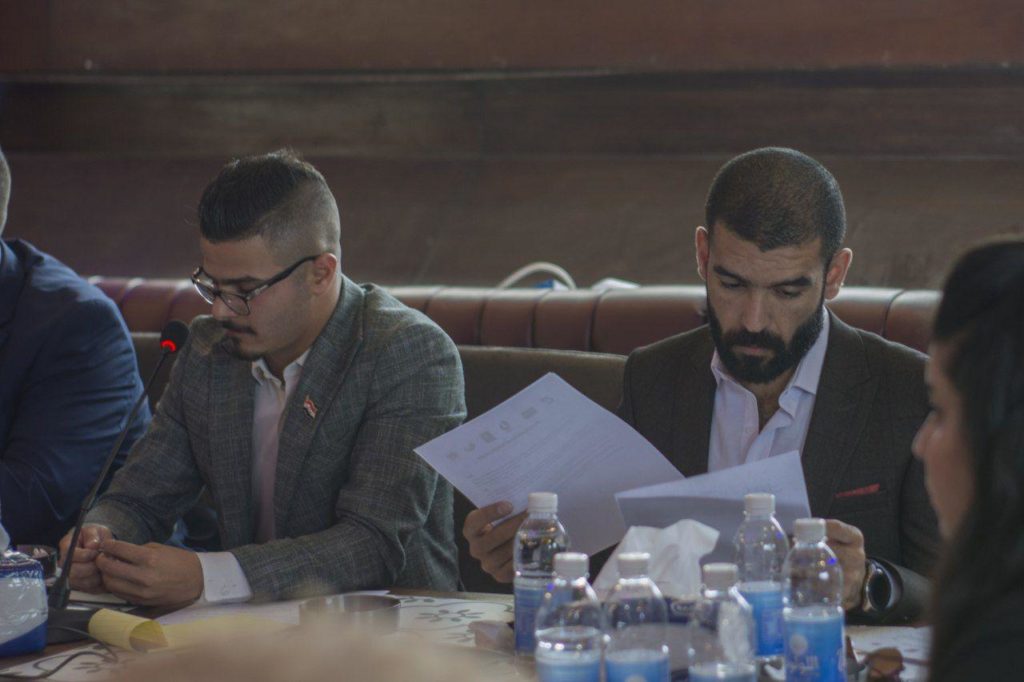
The Baghdad Social Cohesion Council is one of the councils operating in 4 governorates in Iraq (Sulaymaniyah, Baghdad, Falluja and Maysan). The Council organized this workshop in cooperation with the Information Center for Research and Development, The Iraqi Civil Society Solidarity Initiative, the Italian Organization, Un Ponte Per.. and the Economic and Social Rights masar of the Iraqi Social Forum. This activity is part of the ‘Mesopotamian Youth for Democratic Governance, Social Cohesion, and Reconciliation in Iraq project’, supported by the EU.

